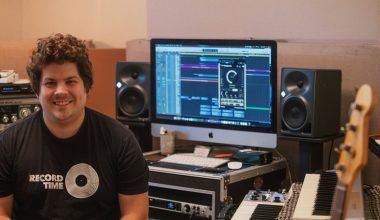how to start a music business might feel overwhelming, but with a little guidance and persistence, you can build something incredible. Whether you’re an aspiring artist, manager, producer, or entrepreneur, the music industry has plenty of opportunities waiting for you. So, let’s dive in and break it all down into manageable steps.
Find Your Niche
The first thing you need to do is figure out your role in the music industry. Are you an artist looking to produce and distribute your music? Or perhaps you want to manage artists, organize events, or start your own record label? Identifying your niche is crucial because it helps you focus your efforts and resources where they matter most.
Think about what excites you the most. If you’re passionate about creating beats, you could dive into music production. If you love connecting with people, maybe artist management is your calling. Don’t be afraid to dream big—the sky’s the limit when it comes to creativity.
Develop a Business Plan
Every successful business starts with a solid plan. Take some time to draft a clear business plan that outlines your goals, target audience, and financial projections. Be specific about what you want to achieve in the short and long term.
For example, if you’re launching a music streaming platform, detail how you plan to attract artists and listeners. If you’re starting a record label, list the steps you’ll take to sign and promote artists. Your business plan will be your roadmap, guiding you through challenges and helping you stay on track.
Understand the Music Industry
The music business is dynamic, and staying informed is essential. Take time to learn about how the industry works, from royalties and licensing to marketing and distribution.
Research the key players in the industry. What makes certain artists or labels successful? How do streaming platforms operate? The more you know, the better equipped you’ll be to navigate the complexities of the music business.
Build a Strong Network
Connections matter in the music industry. Start networking with artists, producers, managers, and other professionals. Attend industry events, join online forums, and use social media to connect with like-minded individuals.
Relationships can open doors to collaborations and opportunities that you might not find otherwise. Don’t be shy—reach out and introduce yourself. Authenticity goes a long way, so be genuine and supportive in your interactions.
Set Up the Legal Framework
Every business needs a solid legal foundation, and a music business is no exception. Decide on your business structure—will you operate as a sole proprietorship, partnership, or LLC? Register your business name and obtain any necessary licenses or permits.
Also, familiarize yourself with music copyright laws. Whether you’re an artist or a label owner, protecting intellectual property is vital. Consider hiring a lawyer or consultant who specializes in entertainment law to help you navigate contracts and agreements.
Create Your Brand
Your brand is what sets you apart in the crowded music industry. It’s not just about a cool logo or catchy name; it’s about creating an identity that resonates with your audience.
Think about what makes you unique. Are you committed to promoting independent artists? Do you specialize in a specific genre? Use your mission and values to shape your brand. And don’t forget to create a strong online presence. A professional website and active social media accounts are essential tools for building your brand.
Invest in Quality Equipment
If you’re venturing into music production or recording, investing in quality equipment is a must. You don’t need to break the bank, but ensure you have the tools necessary to create high-quality music. This might include microphones, audio interfaces, studio monitors, and editing software.
Even if you’re not directly creating music, understanding the technical side of things will help you communicate better with artists and producers.
Promote Your Business
Marketing is key to growing your music business. Use social media, email campaigns, and online advertising to reach your target audience. Share engaging content like behind-the-scenes videos, live performances, or artist interviews to connect with fans.
Collaborations are another great way to promote your business. Partner with other artists, brands, or influencers to expand your reach. The more creative you are with your promotions, the more likely you are to stand out.
Understand Your Audience
Knowing your audience is critical. What kind of music do they love? Where do they spend their time online? What problems can you solve for them?
Use analytics tools to gather insights about your audience. Platforms like Spotify, YouTube, and social media provide valuable data on listener demographics and preferences. This information will help you tailor your content and marketing strategies.
Stay Consistent and Adapt
how to start a music business takes time, effort, and consistency. There will be setbacks along the way, but don’t let them discourage you. Learn from your mistakes and keep pushing forward.
At the same time, be open to change. The music industry evolves rapidly, and staying flexible will help you stay ahead of the curve. Embrace new technologies, trends, and opportunities as they arise.
Conclusion
how to start a music business may seem challenging, but with passion, planning, and perseverance, it’s absolutely achievable. Take it one step at a time, and remember to enjoy the journey. After all, the music industry is about creativity and connection. Follow your dreams, and you might just create something extraordinary.
For further reading, explore these related articles:
For additional resources on music marketing and distribution, visit DMT Records Pvt. Ltd..






